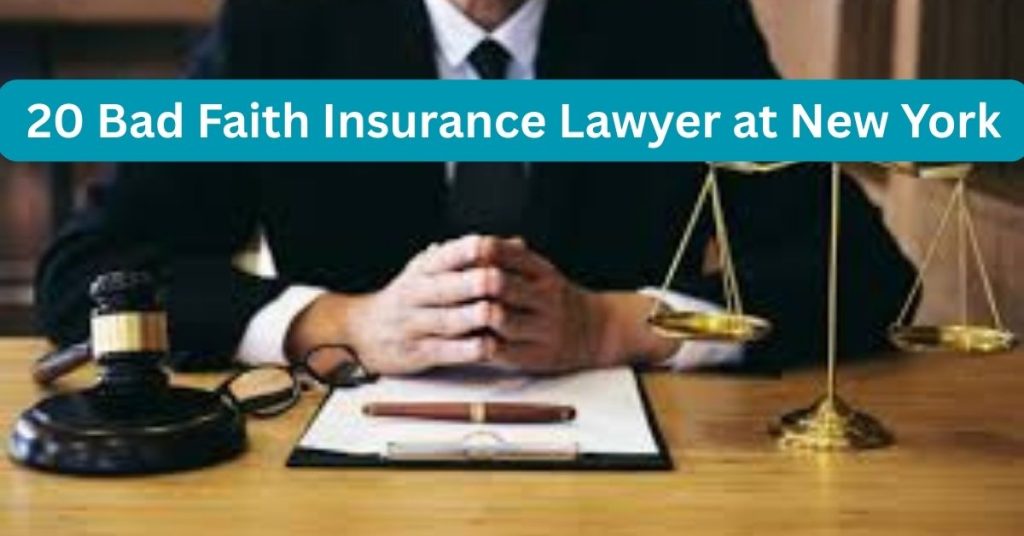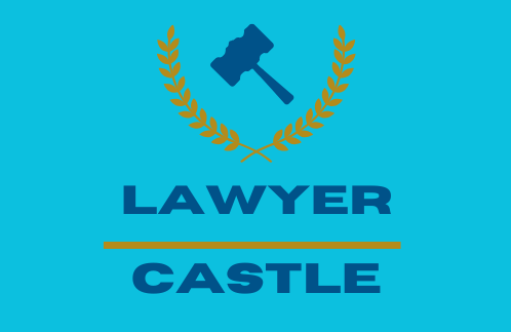If your insurance company has wrongfully denied or delayed your claim, a bad faith insurance lawyer in New York can protect your rights. Insurance policies carry an implied duty of good faith and fair dealing, so insurers must honor valid claims. When insurers unreasonably refuse to pay or stall your health, auto, life, or malpractice insurance benefits, that may be illegal bad faith. In New York, policyholders often rely on common-law rules and state regulators (not a private statute) to address insurer misconduct. This guide explains bad faith claims in New York, when to hire a lawyer, and how specialized attorneys (health insurance lawyers, car accident insurance lawyers, life insurance lawyers, etc.) can fight for you.

Insurance disputes are unfortunately common: recent studies show insurers deny a significant share of claims. For example, insurers of ACA plans denied about 19% of in-network claims in 2023. Auto accidents and life insurance claims face denials too: roughly 5–15% of auto claims are denied nationally, and 10–20% of life insurance claims are initially denied. When denials occur, only a tiny fraction of Americans appeal them. An experienced insurance dispute lawyer can step in to challenge denials, negotiate better settlements, and, if needed, take the insurer to court. Below we cover the key steps, examples of bad faith, and tips to find the right lawyer for your New York insurance claim.

Table of Contents
What is Bad Faith Insurance?
“Bad faith” occurs when an insurance company acts unfairly or dishonestly in handling a claim. Every insurance policy carries an implied covenant of good faith and fair dealing. In practice this means insurers must investigate claims promptly, explain their decisions, and settle reasonable claims without undue delay. If an insurer unreasonably denies or underpays a valid claim, refuses to provide reasons, delays processing your claim, or pressures you to accept less than full value, those actions may violate this duty. For example:
- Unreasonable Claim Denial: Denying a claim without a valid, documented reason or on a technicality can be bad faith. Insurers must justify denials and can’t simply assume you’ll walk away bad faith insurance lawyer.
- Low-Ball Settlements: Offering much less than a claim’s value, even when the policy covers it, may be bad faith. Insurers are profit-driven and may try to limit payouts; a lawyer can push them to honor full policy limits bad faith insurance lawyer.
- Delays and Denials: Excessive delays in responding or indecisively toggling between approval and denial can indicate bad faith. Insurers know time pressures, especially for medical claims, so unreasonable stalling can violate your rights bad faith insurance lawyer.
- Failure to Defend or Pay: If an insurer refuses to pay a judgment or properly defend a covered case, they may be liable for extra damages. For example, an insurer who refuses to settle within policy limits may expose the insured to excess liability, a classic bad faith scenario.

New York law does not yet provide a private right for policyholders to sue insurers for bad faith (unlike some other states). Instead, policyholders file breach-of-contract suits for unpaid claims and may report misconduct to the NY Department of Financial Services (DFS). (Pending legislation would change this, granting New Yorkers a direct right to sue insurers and recover attorneys’ fees.) Despite this, insurers still must honor their contracts – and if they don’t, you can pursue all contract remedies and potentially additional damages. New York courts recognize that an insurer’s refusal to settle a valid claim can constitute bad faith even absent a statute bad faith insurance lawyer.
Examples of Bad Faith Practices
Knowing the warning signs helps you spot bad faith. Common insurer misconduct includes:
- Ignoring Claim Issues: Failing to explain why a claim was denied or missing deadlines. If an insurer denies without explanation or moves the goalposts (e.g. suddenly citing “lack of medical necessity” with no prior notice), that’s a red flag.
- Low Offers Despite Clear Liability: Offering a fraction of what your policy provides even when coverage is clear (e.g. a serious accident with clear fault). Insurers often undervalue claims to protect profits. When this happens, a bad faith insurance lawyer can demand full payment and threaten litigation bad faith insurance lawyer.
- Unnecessary Delays: Dragging out claim processing without justification. For example, delaying approval for urgent medical treatment or taking months to respond to a health or life insurance claim. Such tactics pressure policyholders to give up.
- Misrepresenting Policy Terms: Twisting exclusions or fine-print to avoid payment. If the insurer omits key policy information or misleads you about coverage, it may be acting in bad faith insurance lawyer.
- Pressuring to Settle Quickly: Pushing the claimant to accept a low settlement immediately or without full information can be bad faith. Good lawyers will insist on fair negotiation, not coercion bad faith insurance lawyer.
Statute and relief: In New York, insurers that breach their contract may owe not only the covered benefits but also consequential damages caused by the breach. Courts have held that if an insurer knowingly refuses to settle within limits, exposing the insured to excess liability, it may be liable for bad faith. If bad faith is proven, damages can include the unpaid policy amount plus additional damages (like legal fees and even punitive damages).
Types of Insurance Disputes
Bad faith can occur with any type of insurance. A skilled insurance attorney often handles a range of cases. Key categories include:
- Health Insurance Claims: When medical providers recommend a treatment, insurers are expected to approve covered services promptly. Denials are common – for example, 19% of in-network ACA health claims were denied in 2023. A health insurance lawyer helps appeal denials (even using state or federal appeal processes) and can represent you if the insurer undervalued or delayed your claim. Many policyholders lack the time or expertise to challenge complex medical denials, so an attorney with health-insurance experience is crucial.
- Auto/Car Accident Claims: Auto insurance disputes often arise after crashes. Statistics suggest 5–15% of auto insurance claims are denied or stalled. In states like New York, staged accidents and fraud are on the rise (NY saw a 14% increase in staged collisions in 2022–2023). A car accident insurance lawyer or lawyer for insurance claims auto can help if your insurer contests liability or low-balls the payout. They will deal with evidence, accident reports, and ensure you receive full benefits under your policy. If fraud is involved (e.g., a staged collision), specialized counsel can coordinate with authorities and uncover evidence while protecting you from insurer pushback.
- Life Insurance Claims: Beneficiaries sometimes find life insurance claims denied or underpaid. In fact, 10–20% of life insurance death benefit claims are denied initially. Common reasons include alleged misstatements in the application or procedural issues. However, studies show nearly 40% of denied life claims are later overturned on appeal. A life insurance lawyer can navigate insurers’ requirements and challenge unfair denials, helping ensure beneficiaries receive the promised death benefit bad faith insurance lawyer.
- Professional/Medical Malpractice Insurance: Doctors and lawyers carry malpractice insurance. Occasionally, insurers may refuse to cover a claim made against a professional despite a valid policy. If a malpractice insurer improperly denies or delays coverage for a legitimate claim, that provider may need a malpractice insurance lawyer. (Similarly, anyone facing a denied malpractice claim from the other side may need an attorney to pursue due coverage.) Insurance dispute lawyers often handle these professional liability coverage issues as well bad faith insurance lawyer.
- Insurance Fraud and Disputes: When insurers commit fraud (e.g., falsifying reasons for denials) or when policyholders commit fraud, it leads to complicated disputes. New York policyholders defrauded by insurers should consult an insurance fraud lawyer. Insurance fraud costs the U.S. over $308.6 billion per year, so insurers invest heavily in anti-fraud tactics. If a company’s actions seem deceptive (for example, staging reasons to deny your claim), a fraud-focused attorney can investigate and, if warranted, bring criminal or civil charges on your behalf.
- Other Insurance Cases: This includes homeowner’s insurance disputes, disability insurance denials, workers’ compensation, and more. In any case where an insurer handles your claim unfairly, an insurance dispute lawyer can evaluate whether bad faith occurred bad faith insurance lawyer.
How a Bad Faith Insurance Lawyer Helps
Hiring a lawyer specialized in insurance claims can make a big difference. Key ways they help include:
- Evaluating Your Case: An attorney will review your policy and claim details to determine if bad faith exists. They know the law and common claim tactics, so they can identify when an insurer has overstepped.
- Filing Appeals and Complaints: For denied claims, lawyers handle the appeals process (often required by law or the insurance contract), including writing demand letters and documenting your case. In New York, you can also file a complaint with the state DFS if needed. An experienced attorney knows these procedures and deadlines bad faith insurance lawyer.
- Negotiation: Lawyers are skilled negotiators. Insurance companies often try to settle quickly for less, knowing claimants may not fight back. But bringing in counsel sends a strong signal – insurers recognize a lawyer means you’re serious about fair compensation. Attorneys leverage their knowledge of law and past settlements to negotiate higher offers than you might achieve alone.
- Litigation and Courtroom Advocacy: If the insurer won’t budge, an attorney will sue on your behalf. They handle the complex legal steps to file a lawsuit and present the case in court. Lawyers can argue complicated policy language and bad faith doctrines before a judge or jury, potentially securing damages beyond the original claim. For instance, many law firms secure additional damages (like legal fees and even punitive awards) when insurers are shown to have acted in bad faith insurance lawyer.
- Expertise and Resources: Complex claims often require medical experts, accident reconstruction, or actuarial analysis. A law firm has resources to gather evidence (medical records, investigations, expert testimony) and can devote time to your case that an individual might not. They level the playing field against insurers’ teams of claims adjusters and lawyers bad faith insurance lawyer.
- Contingency Handling: Many insurance lawyers work on a contingency-fee basis, meaning you pay nothing upfront and only pay a percentage if you win. This makes legal help accessible without huge outlays. (In fact, some New York firms promise no fees unless you win.) Your lawyer will also advance case costs and only recover them from any award, reducing your risk.
Example: After a car accident, Leav & Steinberg, a New York law firm, helped a client whose $100K policy claim was delayed. The firm sent a “bad faith” demand letter, and the insurer immediately agreed to pay the full $100K. The client’s initial $14K offer became the full coverage once lawyers got involved. This illustrates how a skilled lawyer can turn an unfair lowball into a full recovery bad faith insurance lawyer.
Finding the Right Insurance Lawyer in New York
Choosing a lawyer is a critical step. Here are tips for finding the best match:
- Specialization: Look for attorneys who focus on insurance claims and bad faith litigation, not general practitioners. Lawyers who regularly handle insurance appeals or coverage disputes (such as health insurance lawyers or car accident insurance lawyers) understand the nuances of insurance law. They know how to interpret complex policies and anticipate insurer tactics.
- Experience in New York Law: Make sure the lawyer knows New York insurance law. While much bad faith law is federal or common-law, local rules (and any pending NY legislation) matter. An attorney experienced in NY courts (especially NY Supreme Court and Appellate divisions) will navigate state-specific procedures bad faith insurance lawyer.
- Track Record: Ask about past results. A reputable attorney should have a history of successfully resolving claims—either by settlement or verdict. Many law firms publish case results or settlements online.
- Contingency and Fees: Understand the fee structure. Many claim lawyers work on contingency (commonly 25–40% of any award). This means no upfront cost, but you share a portion of recovery. Clarify whether there are additional costs for expert witnesses or filing fees. A good lawyer will explain fees clearly and give a written agreement bad faith insurance lawyer.
- Free Consultation: Most insurance lawyers offer free initial consultations. Use this to discuss your case without obligation. Good questions to ask include: “How many bad faith cases have you handled?”, “Have you litigated similar insurance disputes?”, and “What outcomes can I reasonably expect?”. Keep in mind that New York Senate bill S6813A would allow prevailing policyholders to recover attorneys’ fees, which may influence strategies once (and if) it passes.
- Reputation and Reviews: Check ratings and reviews. Peer-reviewed attorneys (e.g. Martindale-Hubbell AV-rated) or Super Lawyers lists for “insurance disputes” add confidence. Local bar associations or online lawyer directories can also help vet candidates.
- Resources: Larger firms may have more resources, while small firms offer personal attention. Determine what suits your case: a big insurer fight may benefit from a team that can manage extensive evidence gathering bad faith insurance lawyer.
Steps to Take After a Denied Claim
If an insurer denies or delays your claim, act promptly:
- Review Your Policy: Check the exact terms, coverages, and exclusions. Look for clauses about appeals or dispute processes.
- Document Everything: Keep all correspondence, emails, claim forms, and notes of calls with the insurer. Obtain written denial letters and reasons. Take photos, videos, or medical records as evidence of loss or damage.
- Contact the Insurer: Sometimes a quick call can resolve misunderstandings. Ask the adjuster to explain the denial in detail. If it seems unfounded, request a written reconsideration.
- File an Internal Appeal: Many policies (especially health insurance under ERISA or state-regulated plans) require a formal appeal. Follow the insurer’s appeal process exactly and gather supporting evidence (e.g. medical letters, repair estimates).
- Consult a Lawyer: If appeals fail or the process is obstructive, call an insurance dispute lawyer. An attorney can send a demand letter citing bad faith (often prompting a resolution) and prepare for external actions.
- File a Complaint with DFS: In New York, you can file a complaint about your insurance company at the NY Department of Financial Services. While DFS won’t award money, it may investigate patterns of misconduct. Meanwhile, your lawyer can mention this complaint to pressure the insurer.
- Consider Litigation: If a lawsuit is necessary, your lawyer will file suit in New York State court. They will handle the complaint drafting, discovery (exchanging information), and trial if needed. Lawsuits can be lengthy, but courts generally allow them when insurer conduct is clearly improper bad faith insurance lawyer.
Throughout, keep clear communication with your lawyer. They may also negotiate while suit is pending. Always weigh potential recovery against time and cost – often, having expert legal help leads to better outcomes even when insurers drag their feet bad faith insurance lawyer.
FAQs (Frequently Asked Questions)
- Q: What qualifies as bad faith in insurance claims? A: Bad faith generally means the insurer unreasonably denies, delays, or undervalues a covered claim. In New York, it’s shown when an insurer knows a policy clearly covers a loss but still refuses to pay without a valid reason. Examples include refusing to pay policy limits when liability is clear or ignoring clear evidence of loss bad faith insurance lawyer.
- Q: How do I prove an insurer acted in bad faith? A: You typically start by showing you met the policy terms (paid premiums, followed procedures) and had a valid claim. Then demonstrate the insurer’s misconduct: e.g., written evidence of unreasonable delay, denial without basis, or contradictory statements. Attorneys often point to internal company rules and past payout practices. New York cases have held that if an insurer knowingly fails to settle a claim within policy limits, that can establish bad faith insurance lawyer.
- Q: Can I sue my insurer for bad faith in New York? A: Currently New York does not allow policyholders a private lawsuit for bad faith by statute. Instead, you sue for breach of contract (the unpaid claim) and may seek extra damages as a consequence of that breach. Proposed laws (S6813A/A7285A) would grant private bad-faith suits and attorney fees, but until then you work through contract law and possibly DFS complaints.
- Q: What damages can I recover if bad faith is proven? A: At minimum you get the original policy benefits owed. In addition, New York allows “consequential damages” for the insurer’s misconduct. This can include economic losses caused by the insurer’s actions (e.g. excess liability judgments, lost business opportunity, additional interest, legal fees, etc.). In rare cases, punitive damages are also possible when conduct is egregious.
- Q: When should I hire a car accident insurance lawyer? A: If your auto insurer denies a valid accident claim, underpays significantly, or delays unreasonably, consult an attorney. Car accident insurance lawyers handle negotiations with auto insurers, can challenge staged-accident fraud claims, and ensure you get full compensation for injuries or damage bad faith insurance lawyer. Generally, if you’re unsure why a claim was denied or the offered settlement is low, an auto insurance lawyer can investigate and demand fair treatment bad faith insurance lawyer.
- Q: Why hire a health insurance lawyer after a claim denial? A: Health insurers often deny treatments or procedures. A health insurance lawyer knows medical coding and appeal laws; they can assemble medical evidence and file internal/external appeals. Given that only about 1% of denied medical claims are voluntarily appealed by patients, having a lawyer guide the process greatly improves your chance of success. They also handle ERISA rules for employer plans bad faith insurance lawyer.
- Q: What does a life insurance lawyer do? A: If a life insurer refuses to pay a death benefit, a life insurance lawyer will review the policy and claim, then press the insurer for payment. They navigate issues like application discrepancies or contest periods. Given that nearly 1 in 5 life insurance claims is denied initially, having a lawyer can uncover hidden policy provisions or rebut misstatements, often reversing denials.
- Q: Do insurance lawyers work on contingency? A: Often yes. Many bad faith and claim attorneys operate on contingency fee agreements. You typically owe nothing upfront; the lawyer gets a percentage of any recovery. New York law does not currently award statutory fees on bad faith claims (since you sue contract), but reputable firms still take cases with no fees unless they win. Always confirm fee terms during your free consultation.
- Q: Should I file a complaint with the NY DFS before suing? A: You can do both. Filing a complaint with the Department of Financial Services is free and may flag insurer misconduct, but it won’t get you money directly. Some clients file with DFS while also pursuing their own legal case. Attorneys often mention a pending DFS complaint to underscore seriousness when negotiating with the insurer.
- Q: How long do I have to take action? A: For insurance contract claims, New York generally has a six-year statute of limitations from breach (e.g. date of denial). However, appeals and internal deadlines may require earlier action (some appeals must be filed within a few months). It’s best to consult a lawyer quickly after denial to preserve evidence and comply with any short appeal deadlines bad faith insurance lawyer.
How to Choose & Work with Your Lawyer
Before ending the consultation, discuss the lawyer’s strategy. Ask about: their success with similar cases, how they will handle interactions with the insurance company (letting you focus on recovery), and their timeline expectations. Good lawyers will keep you informed and get your approval on key decisions (e.g. settling vs going to trial).
Helpful tip: Many insurance attorneys emphasize customer service. For example, one NYC firm advertises “extensive experience handling bad faith claims in the five boroughs” and charges no fees unless you win. Find someone you trust to advocate persistently for your claim.
Finally, remember that social proof and referrals matter. If you know someone who dealt with a claim denial, ask them about their experience. Online reviews and lawyer directories can also spotlight reputable New York attorneys for insurance disputes. The goal is a lawyer who will make insurers pay attention to your case bad faith insurance lawyer.
Conclusion
Facing a denied or unfairly handled insurance claim is stressful, but you’re not without options. A skilled bad faith insurance lawyer in New York understands the tactics insurers use and knows how to counteract them. They can review your policy, handle appeals, negotiate or litigate, and help you recover what you’re entitled to (often including extra damages if bad faith is proven) bad faith insurance lawyer.
Throughout your journey, keep documentation and deadlines in mind, and reach out for legal help as soon as possible. An attorney for insurance claims auto, health insurance lawyer, life insurance lawyer or insurance dispute lawyer can navigate the process and provide peace of mind.
Take action today: If you suspect bad faith, contact a New York insurance attorney immediately. Many offer free consultations and don’t charge fees unless you recover compensation. Don’t let an unfair insurer leave you penniless – a bad faith insurance lawyer will fight to uphold the promise your policy makes bad faith insurance lawyer.

Need advice or have an experience to share? Leave a comment below or share this article. Your questions and insights help others facing insurance disputes bad faith insurance lawyer.
Sources: Authoritative legal and insurance sources, including recent studies and NY insurance law guides, have been used to ensure accurate, up-to-date information bad faith insurance lawyer.
